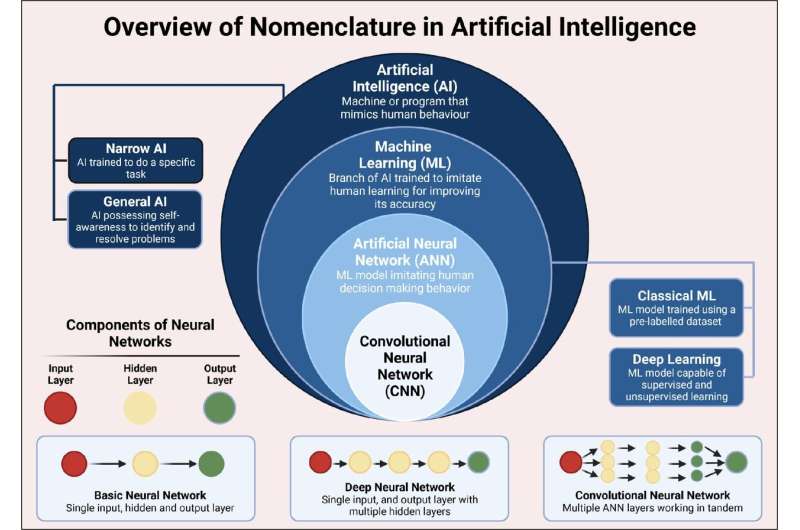This article has been reviewed according to Science X's editorial process and policies. Editors have highlighted the following attributes while ensuring the content's credibility:
fact-checked
proofread
AI offers promise for earlier and more accurate hepatocellular carcinoma diagnosis

Hepatocellular carcinoma (HCC) is the most common type of liver cancer. It is a major global health concern with rising rates, particularly in North Africa and East Asia. Although potentially curable in the early stages, HCC often remains undetected until it's too late for effective treatment. Promising advances in artificial intelligence (AI) technology that could revolutionize HCC diagnosis, leading to earlier detection and improved patient outcomes, have been reported in eGastroenterology by researchers in Singapore and Thailand.
The Barcelona Classification of Liver Cancer (BCLC) guides treatment based on tumor characteristics and liver function. However, current diagnostic methods, like AFP testing and ultrasound, often miss HCC until later stages, limiting treatment options and survival rates.
Recent advancements in AI, particularly deep learning (DL) and neural networks, offer significant potential for improving HCC diagnosis. AI models can analyze large amounts of imaging data, identify subtle patterns missed by human eyes, and provide objective, consistent results. This can potentially reduce diagnostic variability, optimize data analysis and reallocate health care resources.
Early detection of HCC is crucial, as curative treatments like surgery and liver transplant are only possible in the early stages. AI-powered diagnosis can significantly improve early detection rates, leading to more patients receiving treatment, improved patient survival rates and reduced health care costs.
Researchers are actively exploring the potential of AI in various aspects of HCC diagnosis. This includes the development of AI-powered tools for personalized medicine, integrating AI with imaging technologies, and utilizing AI for monitoring treatment response.
"AI holds the potential to revolutionize HCC diagnosis, leading to earlier detection, better treatment options, and improved patient outcomes. Continued research and clinical implementation of AI models are essential to fully realize this potential and make a significant impact on the lives of people living with HCC," state the researchers.
More information: Benjamin Koh et al, Application of artificial intelligence in the diagnosis of hepatocellular carcinoma, eGastroenterology (2023). DOI: 10.1136/egastro-2023-100002


















